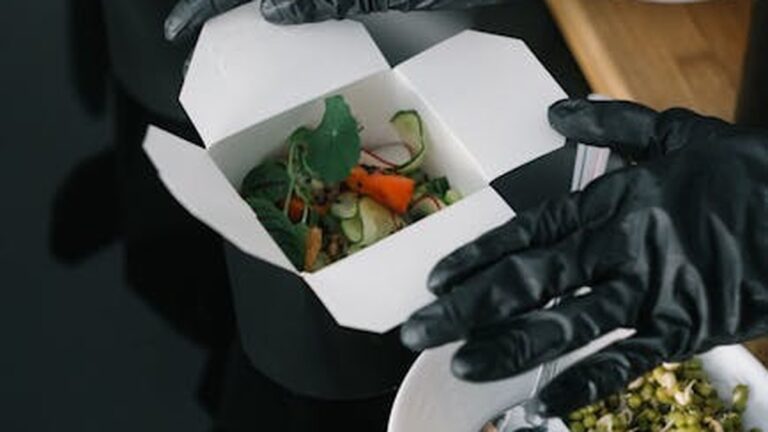Mindful Eating for the Holidays: Avoiding Overindulgence and Cultivating Gratitude
The holiday season: a time for joy, connection, and, let’s be honest, a lot of food. While indulging in festive treats is part of the celebration, it’s easy to slip into patterns of overindulgence that leave us feeling sluggish, guilty, and perhaps a few pounds heavier. But what if you could navigate the holidays with a sense of peace, enjoy your favorite foods without the regret, and even cultivate a deeper sense of gratitude? The answer lies in mindful eating.
What is Mindful Eating?
Mindful eating is more than just a diet; it’s a way of approaching food with awareness, intention, and non-judgment. It’s about paying attention to the sensations of eating, recognizing your body’s hunger and fullness cues, and choosing foods that nourish both your body and mind. It’s a powerful tool for transforming your relationship with food, especially during times when temptation is everywhere.
The Core Principles of Mindful Eating
- Awareness: Paying attention to the present moment while eating. This includes noticing the colors, smells, textures, and tastes of your food.
- Non-Judgment: Observing your thoughts and feelings about food without criticism or guilt.
- Acceptance: Acknowledging your hunger and cravings without automatically acting on them.
- Intention: Consciously choosing what, when, and how much to eat.
- Compassion: Treating yourself with kindness and understanding, even when you slip up.
The Holiday Overindulgence Trap
The holidays are often characterized by an abundance of food and social pressure to indulge. It’s a perfect storm for holiday overindulgence. From office parties to family gatherings, tempting treats are everywhere. Add to that the stress and emotional triggers that often surface during this time, and it’s easy to see why many people struggle with their eating habits.
Why We Overeat During the Holidays
- Emotional Eating: Using food to cope with stress, sadness, or loneliness.
- Social Pressure: Feeling obligated to eat more than you want to avoid offending others.
- Availability: Being surrounded by tempting treats all the time.
- Habit: Falling into patterns of overeating that have been established over years.
- Restriction/Deprivation: Feeling like you need to “get it all in” before the diet starts in January. This often leads to binging.
According to the National Institutes of Health, the average American gains 1-2 pounds during the holiday season, and many people never lose that extra weight. While this may seem insignificant, these small gains can accumulate over time, contributing to long-term weight gain and health problems.
Mindful Eating Strategies for the Holidays
Fortunately, mindful eating can help you navigate the holidays without sacrificing enjoyment or your health. Here are some practical strategies to incorporate into your holiday season:
Before the Meal
- Plan Ahead: Before attending a party or gathering, decide what and how much you want to eat. Visualize yourself making healthy choices.
- Eat a Nourishing Snack: Don’t arrive at a holiday meal starving. A healthy snack, such as fruits, vegetables, or nuts, can help you make more conscious choices.
- Set Intentions: Take a few moments to set an intention for the meal. For example, you might intend to savor each bite or to listen to your body’s hunger cues.
During the Meal
- Slow Down: Put your fork down between bites and chew your food thoroughly. This allows your body to register fullness.
- Engage Your Senses: Pay attention to the colors, textures, and aromas of your food. Savor each bite.
- Listen to Your Body: Notice when you start to feel full and stop eating. Don’t feel obligated to clean your plate.
- Mindful Conversation: Focus on connecting with the people around you rather than focusing solely on the food.
- Hydrate: Drink plenty of water throughout the meal. Sometimes thirst can be mistaken for hunger.
After the Meal
- Reflect: Take a few moments to reflect on your experience. How did you feel during and after the meal? What did you learn about your eating habits?
- Practice Self-Compassion: If you overeat, don’t beat yourself up. Acknowledge it, learn from it, and move on.
- Engage in Light Activity: Take a walk or do some light stretching to aid digestion.
Cultivating Gratitude: A Powerful Tool for Mindful Eating
Gratitude practice can be a powerful ally in your mindful eating journey. When you focus on what you’re grateful for, you’re less likely to turn to food for comfort or distraction.
How to Practice Gratitude During the Holidays
- Gratitude Journal: Keep a journal and write down things you’re grateful for each day.
- Gratitude Meditation: Take a few minutes each day to focus on your breath and reflect on things you’re grateful for.
- Express Gratitude to Others: Tell the people you appreciate how much they mean to you.
- Mindful Appreciation of Food: Before you eat, take a moment to appreciate the food in front of you. Consider where it came from, who prepared it, and the nourishment it provides.
Studies have shown that practicing gratitude can improve mood, reduce stress, and even boost your immune system. By cultivating gratitude, you’re not only improving your relationship with food but also enhancing your overall well-being.
Case Study: Sarah’s Mindful Holiday
Sarah used to dread the holidays. She would routinely overeat at every gathering, feeling guilty and uncomfortable afterward. This year, she decided to try mindful eating. Before each event, she planned what she would eat and set an intention to savor each bite. She practiced gratitude by journaling each morning and expressing appreciation to her loved ones. As a result, Sarah enjoyed the holidays more than ever before. She ate her favorite foods without overdoing it, felt more connected to her family, and experienced a deeper sense of peace and gratitude.
Embracing a Healthier Holiday Season
The holidays don’t have to be a time of guilt and overindulgence. By incorporating mindful eating practices and cultivating gratitude, you can enjoy the festive season without sacrificing your health or well-being. Remember to be kind to yourself, focus on the present moment, and savor the joy of connection and celebration. Embrace healthy holiday eating and let this holiday season be a testament to your conscious choices and newfound appreciation for life’s simple pleasures. Avoiding holiday weight gain is within your reach with conscious holiday consumption!
References
-
Harvard T.H. Chan School of Public Health Nutrition Source
– Evidence-based nutrition guidance from Harvard researchers. -
Academy of Nutrition and Dietetics
– Professional nutrition resources and dietary guidelines. -
Centers for Disease Control and Prevention Nutrition
– Government nutrition recommendations and research.






